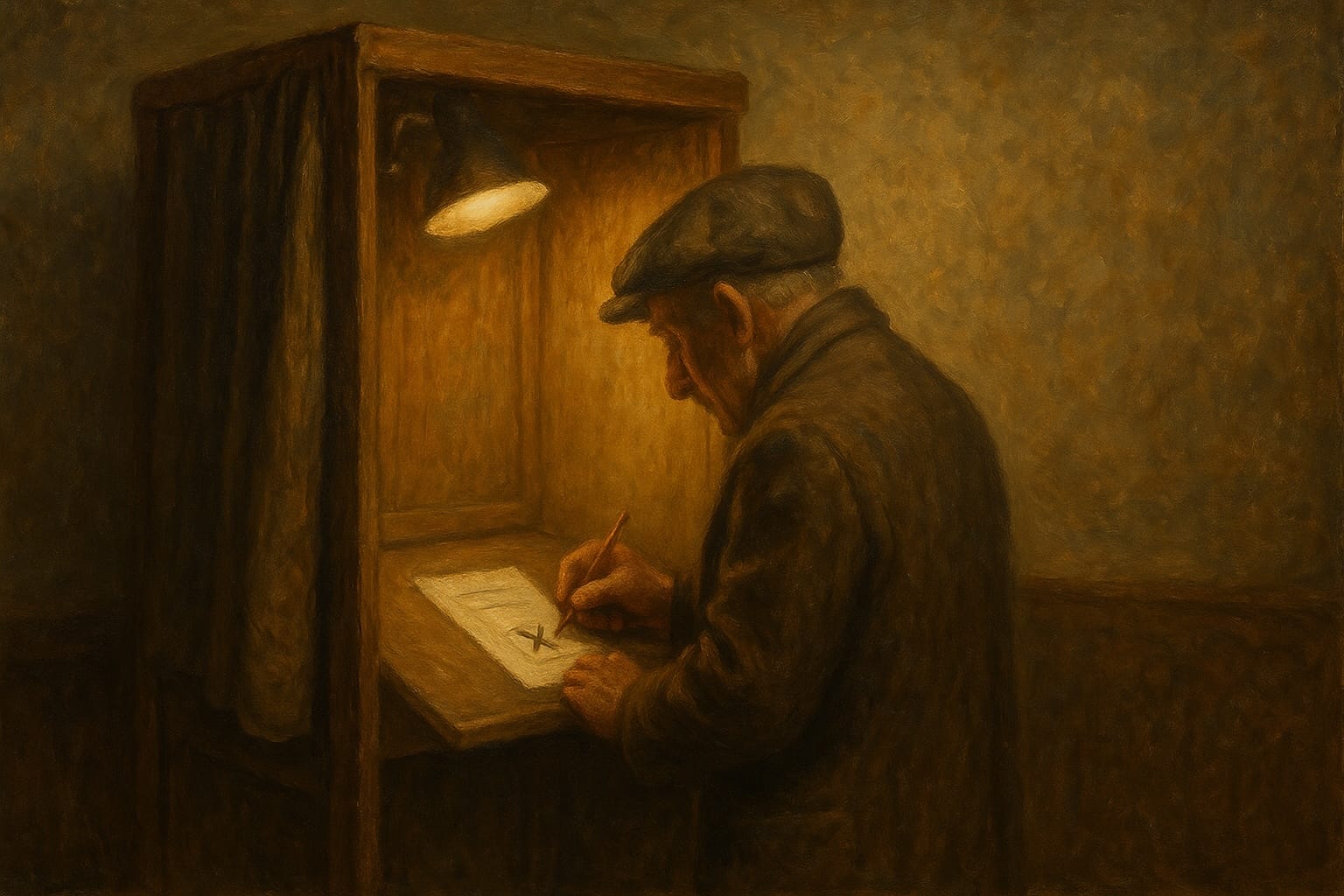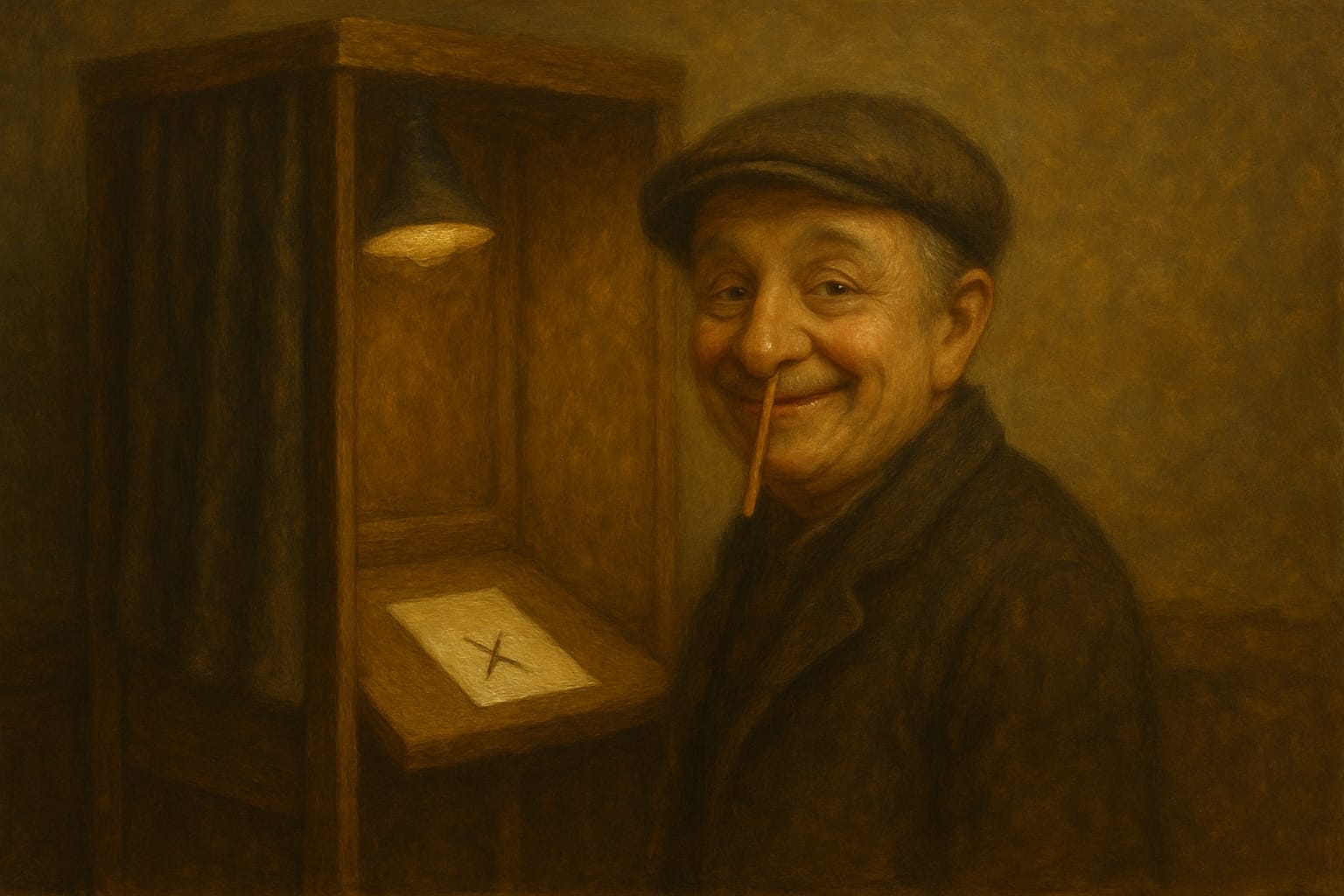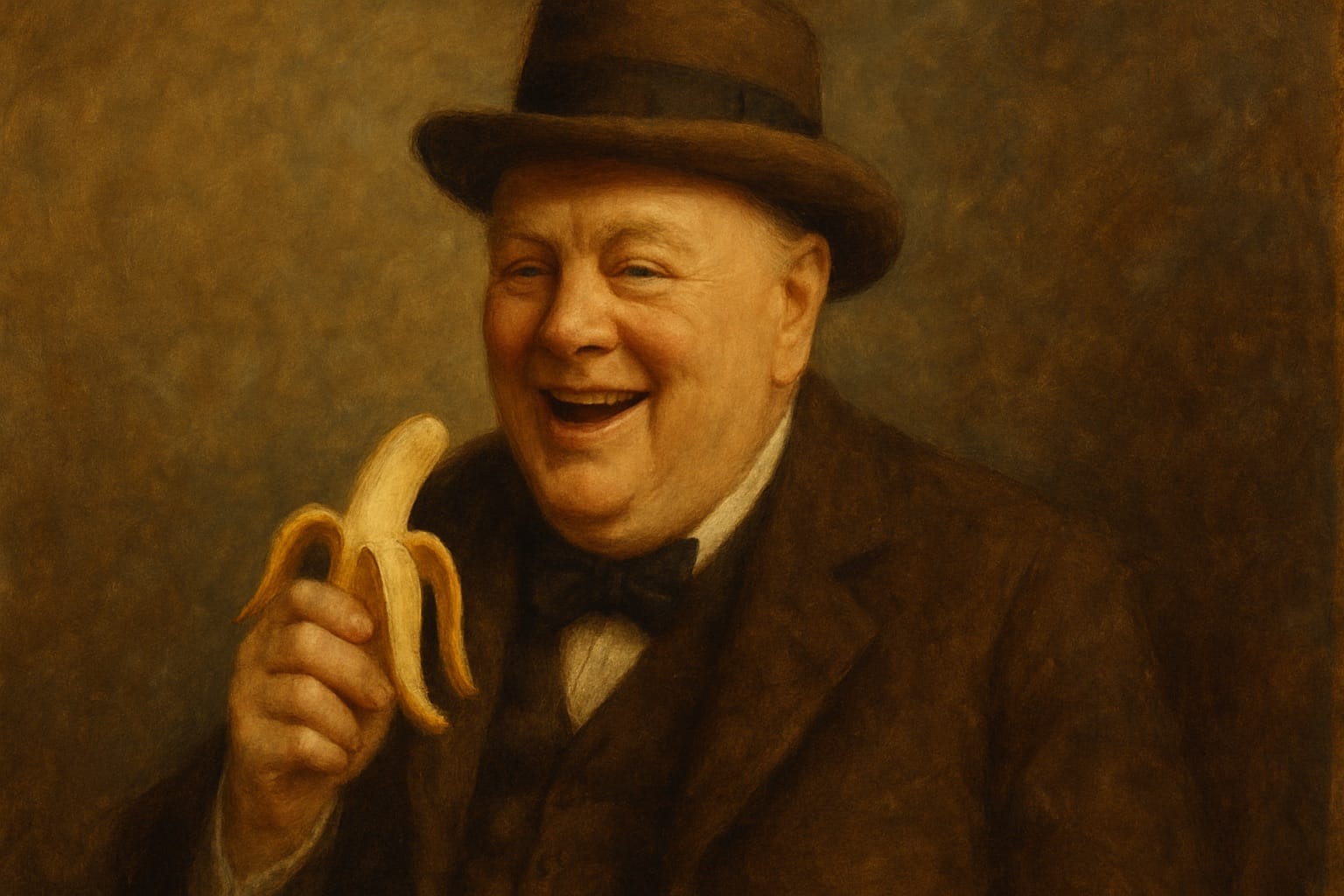Hey folks, there's this quote that smart people love to throw around when they want to sound clever about democracy. Read it with a British accent: "The best argument against democracy is a five minute conversation with the average voter." They always say Churchill said it, usually with this smug look like they've just dropped some profound wisdom.
Except Churchill never fucking said it!
This quote didn't exist until the 1990s, decades after Churchill died. The Churchill Society even has it on their official list of fake Churchill quotes. But that hasn't stopped people from using it whenever democracy produces results they don't like.
Here's the really twisted part: Churchill actually believed the opposite. He said democracy was about "the little man, walking into the little booth, with a little pencil, making a little cross on a little bit of paper." He called this the most important thing in politics. He grew up believing his father's message: "Trust the people."

So here's a deliciously wicked thought experiment: what if we took Churchill's vision and gave it some fucking teeth?
Picture this: "the little man, walking into the little booth, with a little pencil, making a little cross on a little bit of paper... and then answering three little simple questions about the Constitution". Maybe we throw in a basic maths problem, just for fun. Can't name the three branches of government? Your vote goes in the bin. Think 7 x 8 equals 54? Thanks for playing, now piss off. Read this with Newyorkese accent: "You are FIRED"... See where I am going?
The beauty of this system isn't just its elegant simplicity. It's the magnificent carnage it would unleash on American politics. Suddenly, all those mouth-breathing masses who think the Constitution was written by Jesus himself would find their precious democratic voice silenced by their own stupidity.
Trump's 2024 victory (Note: this is where I was going before) becomes relatively impossible in this scenario. Those rallies full of people who can't spell "democracy" but insist they're defending it? Their votes don't count. The conspiracy theorists who think the Deep State is hiding in their breakfast cereal? The bigots whose understanding of government comes entirely from Facebook memes? Eliminated by basic arithmetic.
This isn't voter suppression, it's voter curation. We're not denying anyone the right to vote based on race, gender, or class. We're simply asking them to demonstrate the intellectual capacity of a reasonably bright twelve-year-old before they're allowed to choose the leader of the free world.
But here's the beautiful irony: the people most offended by competency tests would be precisely the people most likely to fail them. The Dunning-Kruger effect in real time, a self-selecting purge of democratic dead weight.
For those unfamiliar with this psychological gem, the Dunning-Kruger effect describes how people with limited knowledge or competence in a field systematically overestimate their own abilities in that very field. The crueller twist? Their incompetence makes them incapable of recognising their incompetence. They don't just not know, they don't know that they don't know.
Picture the Trump supporter who's absolutely certain they understand the Constitution better than constitutional scholars, despite being unable to name the three branches of government, preferring to assault them. Or the voter who confidently explains economic policy while struggling with basic arithmetic. Their ignorance doesn't make them humble; it makes them arrogant. The less they know, the more convinced they become of their expertise.
Would this system be fair? Fuck no. Would it be democratic in the traditional sense? Absolutely not. Would it prevent catastrophically stupid electoral outcomes? Almost certainly. The genius lies in its brutal honesty about what democracy actually produces when every warm body gets an equal say. We pretend that all votes are created equal, but some votes come from people who think the sun revolves around the earth. Some votes come from people who can't find their own country on a map. Some votes come from people whose entire political philosophy fits on a red baseball cap.
Churchill believed in trusting the people, but he lived in an era when "the people" had received at least a basic education. He couldn't have imagined a democracy where millions of voters get their information from TikTok videos and think expertise is a form of oppression.
The competency test isn't about creating an aristocracy of intelligence. It's about acknowledging that democracy requires a minimum baseline of civic knowledge to function. We don't let people drive without passing a test, perform surgery without medical training, or teach school without education credentials. But somehow, choosing the most powerful person on earth requires no qualifications whatsoever.
The result? Trump. Twice. A walking testament to what happens when democracy meets weaponised ignorance, when the uninformed masses are given equal weight to those who actually understand how government works.

Of course, this system will never exist. The very people it would exclude are the ones most likely to vote, while those capable of passing such tests are often too sophisticated to bother with the messy business of electoral politics. Democracy's great joke: the people most qualified to choose leaders are least interested in choosing them, while those most eager to vote are least equipped to do so intelligently. So we're stuck with our current system, where every vote counts equally regardless of whether the voter knows anything about anything. Where ignorance and expertise carry the same weight, where conspiracy theories compete on equal terms with facts, where the loudest voices often belong to the emptiest heads.
Churchill's "little man" has become a mob of little minds, and democracy has become a popularity contest judged by people who think reality TV is real and the news is fake. Perhaps the fake Churchill quote was right after all: the best argument against democracy really is a conversation with the average voter. The only difference is that Churchill would have wanted to educate them. We've given up and decided to let them vote anyway.

